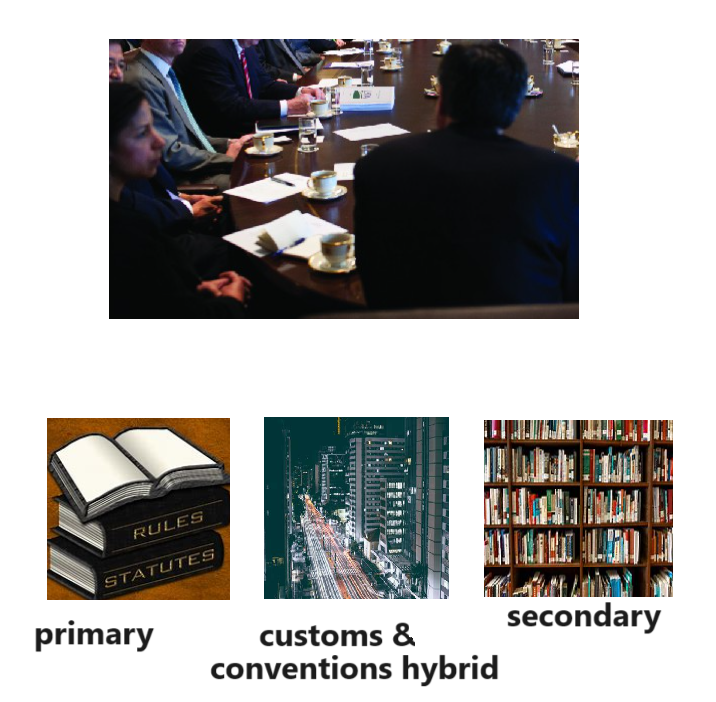Attorney General v Jonathan Cape Ltd [1975] 3 All ER 484, EWHC
Citation:Attorney General v Jonathan Cape Ltd [1975] 3 All ER 484, EWHC
Rule of thumb 1:Are cabinet meetings confidential? Yes, and these cannot be released until at least 10 years after, and, if they contain sensitive information, then they may not even be able to be released after 10 years.
Rule of thumb 2:If there is a deeply entrenched custom/convention/doctrine, can this be deemed to be law? Yes, when customs are deeply entrenched in society, this can be deemed to be a source of law – convention/custom is a sort of hybrid source of law – not a primary source of law but not a secondary source either.
Judgment:
The basic facts of this case were that Richard Crossman, a former minister, kept a number of diaries and recorded what was said in cabinet meetings, and these were set to be published. Cabinet meetings are confidential by convention, although until this case it had not actually been written down as a source of law. The Court held that as a general point of law the minutes could not be published and that in circumstances like these very important customs or conventions, not actually written into law, could still provide an important and valid source of law to be relied on, however, an exception was made to allow these diaries to be published because it was more than 10 years on & there was no overly sensitive information being released.
Ratio-decidendi:
‘The maintenance of the doctrine of joint responsibility within the Cabinet is in the public interest, and the application of that doctrine might be prejudiced by premature disclosure of the views of individual Ministers. There must, however, be a limit in time after which the confidential character of the information, and the duty of the court to restrain publication, will lapse. Since the conclusion of the hearing in this case I have had the opportunity to read the whole of volume one of the Diaries, and my considered view is that I cannot believe that the publication at this interval of anything in volume one would inhibit free discussion in the Cabinet of today, even though the individuals involved are the same, and the national problems have a distressing similarity with those of a decade ago. It is unnecessary to elaborate the evils which might flow if at the close of a Cabinet meeting a Minister proceeded to give the press an analysis of the voting, but we are dealing in this case with a disclosure of information nearly 10 years later. It may, of course, be intensely difficult in a particular case, to say at what point the material loses its confidential character, on the ground that publication will no longer undermine the doctrine of joint Cabinet responsibility. It is this difficulty which prompts some to argue that Cabinet discussions should retain their confidential character for a longer and arbitrary period such as 30 years, or even for all time, but this seems to me to be excessively restrictive. The court should intervene only in the clearest of cases where the continuing confidentiality of the material can be demonstrated. In less clear cases - and this, in my view, is certainly one - reliance must be placed on the good sense and good taste of the Minister or ex-Minister concerned. In the present case there is nothing in Mr. Crossman's work to suggest that he did not support the doctrine of joint Cabinet responsibility. The question for the court is whether it is shown that publication now might damage the doctrine notwithstanding that much of the action is up to 10 years old and three general elections have been held meanwhile. So far as the Attorney-General relies in his argument on the disclosure of individual ministerial opinions, he has not satisfied me that publication would in any way inhibit free and open discussion in Cabinet hereafter’. LCJ Widgery

Warning: This is not professional legal advice. This is not professional legal education advice. Please obtain professional guidance before embarking on any legal course of action. This is just an interpretation of a Judgment by persons of legal insight & varying levels of legal specialism, experience & expertise. Please read the Judgment yourself and form your own interpretation of it with professional assistance.

